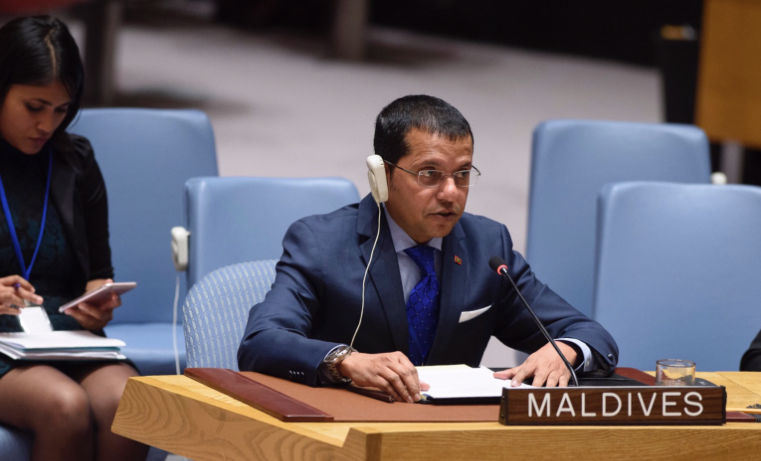In U-turn, Maldives votes against death penalty moratorium at UN
A UN committee was told last month the Maldives would vote yes.

18 Dec 2018, 09:00
The Maldives on Monday voted against a UN general assembly resolution in support of a moratorium on the death penalty, changing its stand in the face of political opposition.
The U-turn comes after president’s office minister Ahmed Naseem told a UN committee last month the new administration would change the Maldives’ vote to yes and uphold a 65-year moratorium on capital punishment.
But permanent representative Dr Ali Naseer explained at the general assembly that while the Maldives was “proud” of the moratorium, the penal code enacted in 2014 prescribed the death penalty for premeditated murder in accordance with Islamic shariah.
“The reality is that the death penalty remains on the books. To favour its abolition without wider public consultation and referendum and without preceding domestic legislation to nullify its implementation would be both unconstitutional and undemocratic,” he said.
Become a member
Get full access to our archive and personalise your experience.
Already a member?
Discussion
No comments yet. Be the first to share your thoughts!
No comments yet. Be the first to join the conversation!
Join the Conversation
Sign in to share your thoughts under an alias and take part in the discussion. Independent journalism thrives on open, respectful debate — your voice matters.




